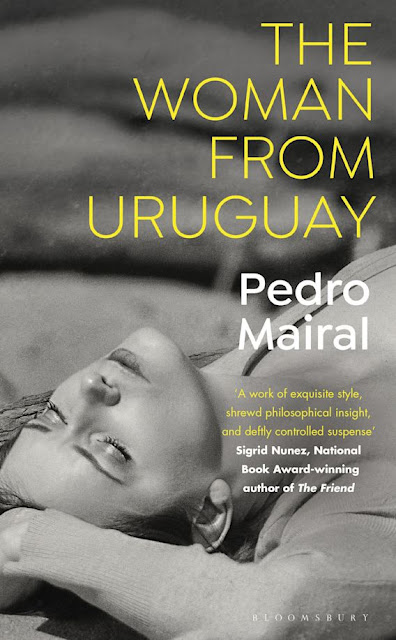Book Review - The Woman from Uruguay
A story about middle-aged male angst may not be especially original, but Pedro Mairal’s bittersweet meditation on love, sexual desire and ageing skewers the absurdity and the pain. His narrator is Lucas, a 44-year-old Argentinian writer, in debt and uninspired. He plays house-husband to his successful wife, Catalina, whom he suspectsof having an affair.
The answer to all his troubles, Lucas believes, is the $15,000 advance from his Spanish publisher, which he plans to cash in a bank on a day trip to the Uruguayan capital Montevideo, and exchange for pesos on the black market back in Buenos Aires. Also in Montevideo on the day Lucas visits is Guerra, the seductive young woman he met at a literary festival. He arranges an afternoon tryst and behaves like a besotted teenager.
Mairal
is alert to the nuances of a midlife crisis – the loss of dignity, the
abandonment of reason – and his descriptions of Lucas getting drunk, stoned and
tattooed, while fixated on bedding Guerra, are pitch-perfect. Lucas admits his
infatuation with Guerra was easy to sustain because he controlled the fantasy:
“All those months I had you in my head and could rewind you, fast-forward you,
pause you. I’d open and close the emails you’d send me.” Later, on the brink of
having his desire fulfilled, he describes the thrill of escaping himself: “she
ran her hand over the back of my neck, and it sent an electric charge all the
way down my back. She reset me. I forgot everything, my name.”
As we are frequently reminded, Mairal’s promiscuous protagonist is a writer (the narrative is confessional) and his thoughts never cease – he eavesdrops on others, questions his motives, ponders banalities. In a flash of self-awareness, Lucas observes: “I wanted to live. To see, to touch. To get inside reality. Get inside Guerra. Get into a war with my fucking imagination, my eternal invisible world.”
By the end of this psychologically astute novella, translated sensitively by Jennifer Croft, Lucas recognises how quickly cracks in a relationship become chasms and that the key to happiness is acceptance.
Originally published by The Observer
